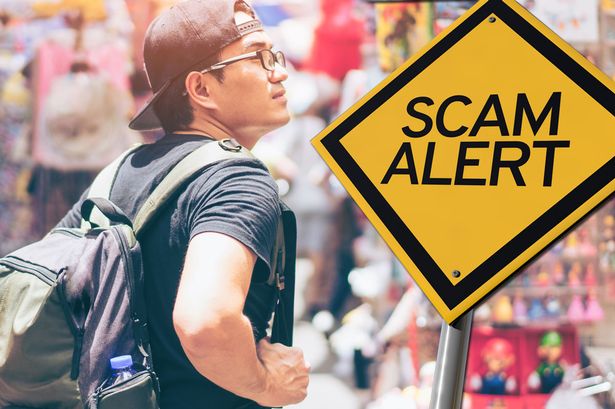Spain like many popular tourist destinations, it also has its share of scammers targeting unsuspecting visitors. Being aware of the common scams and knowing how to avoid them is crucial for having a safe and enjoyable trip. This article will provide detailed insights into the various tourist scams in Spain, statistics on their prevalence, and practical tips on how to avoid falling victim to them.
The Growing Tourist Numbers and Rising Scams in Spain
In 2019, Spain welcomed over 83 million tourists, making it one of the most visited countries in the world. While the COVID-19 pandemic caused a drop in tourism numbers, the country is bouncing back, with millions of tourists returning to explore its wonders. Unfortunately, this influx also attracts individuals looking to take advantage of naive travelers.
A study by the Spanish Ministry of Interior revealed that tourist-related scams increased by 12% between 2015 and 2019, with major cities like Barcelona, Madrid, and Seville being the primary hotspots. Reports suggest that tourists are most often scammed in crowded areas, such as public transport hubs, busy plazas, and popular tourist attractions. Being aware of where and how these scams occur can significantly reduce your chances of being targeted.
Common Tourist Scams in Spain

- The “Free” Bracelet Scam
One of the most common scams you’ll encounter in Spain, especially in Barcelona, is the “free” bracelet trick. Scammers, often operating near popular landmarks like La Rambla or Park Güell, approach tourists offering a “free” friendship bracelet. They might try to tie it around your wrist while engaging in friendly conversation. Once the bracelet is tied, they will demand payment, often using intimidating tactics to pressure you into paying anywhere from €5 to €20.
Read also: Why Should You Move to Live in Spain?
- How to Avoid It: Politely but firmly decline any unsolicited offers. If someone approaches you with a bracelet, simply say “no, thank you” and walk away. Avoid engaging in conversation or allowing them to touch you.
- Fake Petition Signatures
Another scam commonly seen in cities like Madrid and Barcelona involves young women or children who ask tourists to sign a petition. These petitions often claim to support various causes, such as helping the disabled or children in need. After you sign, the scammer will demand a donation, typically around €10 to €20. Some even use this distraction to pickpocket the tourist while they’re focused on the petition.
- How to Avoid It: Avoid interacting with individuals who approach you with a clipboard or ask you to sign anything on the street. Legitimate petitions are rarely conducted in tourist-heavy areas, and genuine charities will not pressure you for immediate donations.
- The “Dropped” Ring Scam
The dropped ring scam is an old trick that’s been refined in Spain. A scammer, usually near tourist spots like Plaza Mayor or the Sagrada Família, will “find” a ring on the ground and offer it to you, claiming it’s valuable. They’ll ask if it belongs to you and, when you deny it, they will offer to sell it at a “bargain” price, often citing that they are in need of money. The ring is usually worthless, and the scammer can be very persuasive.
- How to Avoid It: If someone offers you something that you haven’t dropped, refuse it and keep walking. Avoid getting into conversations with strangers offering found items.
- Pickpocketing and Distraction Tactics
Pickpocketing is a significant problem in Spain, particularly in crowded areas. Scammers often work in groups, with one person distracting you while another lifts your wallet, phone, or other valuables. Common distraction tactics include someone bumping into you, spilling something on your clothes, or a fake argument that draws your attention. The thieves can be incredibly quick, and by the time you realize what’s happened, they’re long gone.
- How to Avoid It: Always be aware of your surroundings, especially in busy areas like markets or metro stations. Keep your valuables in a secure, hidden place, such as a money belt or an inside pocket. Be cautious if someone accidentally spills something on you or tries to help you clean up, as this is a common distraction tactic.
- Overpriced Taxi Rides
While Spain’s taxi services are generally reliable, there are some drivers who target tourists by overcharging for rides. This is particularly common at airports or near major tourist attractions. Some drivers refuse to use the meter or claim that the meter is broken, charging far more than the normal rate.
- How to Avoid It: Always use licensed taxis, which can be identified by a green light on the roof and a visible meter. Insist that the driver uses the meter, and if they refuse, get out and find another taxi. Alternatively, consider using ride-sharing apps like Uber or Cabify, which offer upfront pricing.
- The Flamenco Rose Scam
In cities like Seville and Granada, which are known for their flamenco culture, scammers often approach tourists with roses, claiming they are a “gift” for beautiful women. Once you accept the rose, they will demand payment, sometimes aggressively. The price can range from €5 to €10.
- How to Avoid It: Politely decline any “gifts” offered to you in tourist areas. If someone persists, walk away without engaging.
- Fake Police Officers
A more alarming scam involves individuals posing as police officers. They’ll approach tourists and ask to see their passports and wallets, claiming they are investigating counterfeit money or illegal activity. After examining your wallet, they will discreetly steal cash before handing it back. This scam can be particularly intimidating because the scammers often wear fake badges or uniforms.
- How to Avoid It: Genuine police officers in Spain will not randomly stop tourists to check their wallets. If someone claiming to be a police officer approaches you, ask to see official identification or offer to go with them to the nearest police station. Never hand over your wallet or passport on the street.
Tourist Scams and Regional Hotspots

Certain regions in Spain are more prone to tourist scams than others. Barcelona, as Spain’s most visited city, is a particular hotspot. A study by TripAdvisor in 2018 ranked Barcelona as one of the top cities in Europe for pickpocketing. Similarly, Madrid, Seville, and tourist-heavy areas along the Costa del Sol have also reported higher instances of scams.
According to local reports, Barcelona sees an average of 8,000 pickpocketing incidents annually, with many of these targeting tourists. Madrid isn’t far behind, with around 5,000 reported cases. These statistics underscore the importance of vigilance, especially in crowded or popular tourist areas.
Prices of Common Tourist Scams
Tourist scams in Spain can cost you anywhere from a few euros to hundreds, depending on the situation. Below is a breakdown of the typical amounts involved in some of the most common scams:
- Bracelet Scam: €5 to €20
- Petition Scam: €10 to €20 donation
- Dropped Ring Scam: €20 to €50
- Overcharged Taxi Ride: Can cost up to €30 more than the standard fare
- Fake Police Scam: Victims often lose between €50 to €200 in cash
Practical Tips for Avoiding Scams

- Stay Alert in Crowded Areas: Tourist attractions are prime spots for scammers and pickpockets. Stay aware of your belongings and avoid getting distracted by street performances or large crowds.
- Use Trusted Services: When taking taxis, dining out, or booking tours, always choose reputable services. If possible, ask your hotel for recommendations or use well-reviewed services online.
- Carry Limited Cash: Avoid carrying large sums of money, and only take with you what you need for the day. Use a combination of cards and cash, and keep your wallet in a secure, inaccessible location.
- Be Skeptical of “Too Good to Be True” Offers: Whether it’s a heavily discounted tour or an item someone claims is valuable, always be cautious of deals that seem too good to be true.
- Learn Basic Spanish Phrases: While scammers often speak English, having a basic understanding of Spanish phrases can help you navigate tricky situations and assert your boundaries.
- Keep Copies of Important Documents: If your passport or credit cards are stolen, having photocopies or digital backups can save you a lot of trouble. Store these separately from the originals.
- Trust Your Instincts: If something feels off, it probably is. Don’t be afraid to walk away or decline an offer, even if it feels uncomfortable at the moment.
Read more: 10 Days in Spain: A Full Detailed Planing











